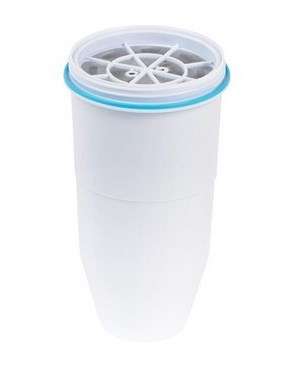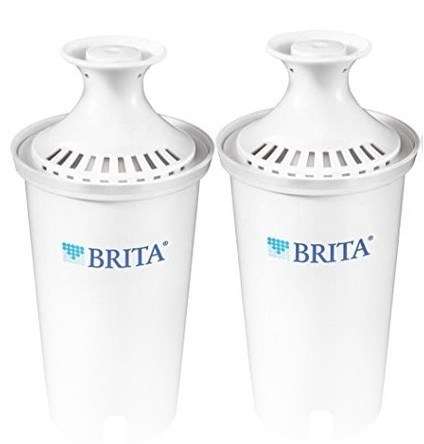Ensuring high-quality daily consumption is of paramount importance to us. It goes without saying that what we eat and drink has a significant impact on our overall health and well-being.
Access to clean and healthy water is a fundamental human need, and every effort is made to ensure its availability at all times. To this end, low-cost water filter pitchers have been introduced to make clean and healthy water more accessible.
These pitchers serve the purpose of removing harmful impurities from tap water while maintaining a basic PH level and reducing the presence of metal compounds such as Chlorine, Zinc, sediments, Mercury, and Copper.
Additionally, these filters help to eliminate the unpleasant odor often found in tap water, improving its overall flavor.
This post aims to provide a thorough examination of the two most widely-used water filters available in the market today: the Brita filter and the Zerowater filter.
Is Zero Water better than Brita?
The primary aim of this article is to conduct a comparative analysis of the Zero Water and Brita water filters, evaluating their respective performance across a range of factors, such as water quality and cost-effectiveness.
These two filters exhibit notable differences in their certifications, filtration speeds, and the taste of the water they produce. While both offer water filtration solutions, the outcomes achieved by each product vary significantly.
By reading this piece, readers will be able to discern which filtering system aligns best with their delivery and preference requirements. Although the two pitchers offer comparable services, they generate markedly different outcomes.
The point of comparison will be as follows:
The Quality of the Water Filter
When considering purchasing a water filter, it is recommended to make a checklist of desired quality and effectiveness in removing impurities. The NSF has verified that two specific brands are effective in eliminating water pollutants and hazardous substances in tap water.
One of these brands is Brita, which utilizes activated carbon to quickly capture organic particles and eliminate chlorine. While its basic filters are effective in removing these impurities, the upgraded Brita filter is even more capable, with the ability to remove lead and pharmaceuticals.
Another brand, Zero Water, has a unique filtration process that stands out significantly among other filters on the market. The filter cartridge in the pitcher doubles as a filtration system, removing water pollutants and utilizing ion-exchange resin to remove not only organic chemicals, but also minerals, metals, and salts.
The resulting water is as pure as water that has been treated and purified in a laboratory.
Both the Brita and Zero Water filters pass lead and heavy metal removal tests, but have little effect on hard-water minerals like calcium and magnesium.
However, Zero Water distinguishes itself in its ability to eliminate magnesium and calcium, preventing the build-up of scale in kettles and improving the overall flavor of the water.
The Aesthetics of the Water Filter Pitcher
The overall appearance and design of water filter pitchers are crucial aspects to consider. Ease of use when pouring and holding the pitcher is essential. Additionally, it is important to ensure that the pitcher has a pre-filtered water reservoir with adequate capacity.
Both the Brita and Zero Water filter pitchers have reservoirs that can fill half of the pitcher, and they are constructed with high quality materials that ensure a quick flow of water. The reservoirs are designed to fit tightly and prevent any flaws or leakage.
The Brita pitcher has the added convenience of being able to fill while pouring, but the handle may not be well-balanced for comfortable use. On the other hand, the Zero Water pitcher has a more pleasing appearance with its spout located at the bottom, eliminating the need to lift the pitcher to fill cups.
While the ZeroWater-6-cup pitcher is lightweight and fits easily in the refrigerator, it will need to be refilled more frequently due to its smaller capacity. Overall, choosing a water filter pitcher that meets your specific needs and preferences is important for optimal usage and satisfaction.
Filtration Speed
When evaluating a water filtration system, it is essential to take into account the filtration speed, which dictates the quantity of water that can be filtered and the duration required to do so.
For instance, the Brita water pitcher has a relatively lengthy filtration period of up to 40 seconds per cup of water. On the other hand, the Zero Water filter is notably slower, requiring up to 110 seconds to filter a single cup of water to ultra-clean standards.
It is worth noting that extended filtration periods are typically necessary to remove most pollutants, including fluoride, from the water source.
Taste Test on Water Filter
A random water quality test was conducted based on the participants’ perceptions, which resulted in a spectrum of responses ranging from dirty to refreshing, and from artificial to crisp.
Our study revealed that individuals who typically consume tap water or spring water showed a preference for the Brita water filter, while those familiar with reverse osmosis systems and a mineral-free taste preferred the Zero Water filter.
It should be noted that carbon filters have varying effects over time, and the decision to remove or retain useful minerals from our drinking water lies with us.
When compared to bottled water, both the Brita and Zero Water filters produced a moderate quantity of minerals, similar to tap water containing up to 300-400 ppm. However, some bottled water products use reverse osmosis to achieve near-zero levels of dissolved pollutants.
Chlorine Removal
Chlorine is known to be a particularly challenging contaminant to remove from tap water. While both water filters are meticulously crafted to remove chlorine, our team is interested in determining the extent to which each pitcher successfully removes this chemical from drinking water.
To accomplish this, we opted to employ the Hatch chlorine test kit, which is capable of detecting even the most minute traces of chlorine.
Over the past year, tap water has consistently contained chlorine levels ranging from 0.7 to 1 parts per million (ppm). Our testing has confirmed that both filters are capable of completely removing all levels of chlorine contamination.
However, subtle differences in the taste of the water may be noticeable. For those on a limited budget seeking a dependable filter, we recommend the Brita filter as a reliable option.
Filter Lifespan
One of the most challenging aspects of evaluating water filters is determining their lifespan. Filters typically use active media to attract and remove particles from the water, which ultimately limits their lifespan.
As the lifespan of an active filter diminishes, its efficiency decreases and impurities begin to accumulate. The ceramic filter allows water to pass through, but when it becomes ineffective, it clogs and impedes water flow.
Brita filters have a capacity of 40 gallons, while the Long last Filter upgrade has a capacity of 120 gallons. In contrast, the Zero Water filter can only produce 15 gallons and is therefore less effective.
For water containing more than 400 ppm of pollutants, the Zero Water filter may require a cartridge change after 10 gallons.
Recommended ⇒ Best Water Filter Pitcher
Zero Water Filter Pros & Cons

Pros
- It is simple to use.
- Eliminates all harmful contaminants from water virtually.
- Minimal to none wastage of water.
- Accompanied by a handheld meter which measures mineral in the water.
- Compatible with any water cooler.
- Gives great tasting water.
- Eliminates all chlorine from the water.
Cons
- Eliminates all essential minerals for the proper functioning of the body.
- The replacement filters are expensive.
- The water is slightly acidic.
- At times leakages are present.
Brita Water Filter Pros & Cons

Pros
- Removes harmful contaminants from water.
- Comes in a range of sizes offering different features.
- It is inexpensive.
- Technological use in the elimination of contaminants.
Cons
- Does not filter out microorganisms.
- Takes a shorter filtration period failing to eliminate all contaminants.
Zero water vs. Brita water filter
Compared to other types of water filters, the Brita filter has been designed to filter a limited amount of minerals, which enables it to maintain optimal performance for a longer period. Although the Brita filter can produce better-tasting water, the quality of water it generates after a month is uncertain.
In contrast, the Zero Water system keeps you informed of the filtering process by regularly testing the water quality with the accompanying meter. As the saturated media releases ions back into the water, you may notice a distinct taste, but unlike the Brita, it is difficult to determine when the filter has lost its effectiveness.
One advantage of Zero Water is that the filter media becomes saturated with ions, resulting in a distinct flavor in your water. However, unlike the Brita, you will not be able to tell when it has lost its efficiency.
Using the Brita system, you can be confident that chlorine, lead, pharmaceutical chemicals, and pesticides are removed from the water. Moreover, it can operate for up to six months, making it the most convenient and easiest method to use.
The Zero Water filter, on the other hand, stands out among other products in the market due to its unique accomplishments. The cartridge has twice the amount of contaminant-grabbing media, including the removal of minerals, salts, metals, and organic substances using ion-exchange resin technology.
Furthermore, Zero Water filters can produce water that is comparable to laboratory treatment, resulting in a significant change in flavor and no harsh water impacts on your kitchen appliances. The appealing and respectable aesthetic of the Zero Water pitcher includes a spout at the bottom, reducing the need to lift the pitcher when getting water.
Overall, the Zero Water-6-cup pitcher filter can achieve a great deal in terms of water filtration. The top-tier filtration technology eliminates all dissolved impurities in the water, resulting in a richer and more satisfying flavor.
Recommended Post:-
Zerowater vs Brita vs Aquagear vs Pur Water Filter Comparison
CONCLUSION
Zero Water is a globally renowned company that specializes in the manufacture of water pitchers, offering a wide range of capacities ranging from six cups to forty cups. These pitchers are designed with an enhanced filtering mechanism, making them ideal for use in various settings, such as homes, offices, and outdoor activities.
Unlike other pitcher filters on the market, Zero Water has a unique set of features and certifications that make them incompatible with other brands. These pitchers are not only of high quality but also affordable for most users.
The company boasts that their filters can eliminate up to 99.6% of all dissolved solids in water, and they do stand by their claim. Moreover, the pitchers are certified by NSF International, further attesting to their quality.
Zero Water pitchers come with a patented 5-stage filtration system with ion exchange capabilities. The first stage of the filter has coarse filtration components that are designed to remove fine particles and sediment.
The second stage features a foam distributor that ensures uniform distribution of water across the filter, enhancing its efficiency and lifespan. The third stage comprises an activated carbon filter that eliminates organic pollutants and chlorine.
The final two stages are designed to demineralize water, with the final layer removing ultra-fine particles from the water. You can assess the quality of the filtered water using the TDS meter included in the package.
On the other hand, the Brita filter excels in removing fluoride from tap water. However, it has a short lifespan, generating up to 40 gallons of water, which may not be sufficient for larger families or individuals who consume large amounts of water daily.
Keeping track of the filter’s lifespan can be challenging, but noting the installation date or monitoring the amount of water passing through it can help.
Furthermore, the Brita filter’s aesthetic flaw is that it is prone to spilling, so users must be careful when transferring water from the pitcher to their glass. Despite this flaw, the Brita filter remains a cost-effective countertop water filtration system that may suit some users’ needs.
Recommended Post
Distilled Water Benefits and Disadvantages
How long do ZeroWater filters last?
Zero Water filter being a major brand is certified by the NSF international for the elimination of harmful contaminants.
The Zero Water filter pitcher is disadvantageous as it does not last long due to its capability to eliminate a large number of contaminants.
Before its lifespan is over, the Zero Water filter may remove up to 18,000 milligrams of dissolved debris from the water it filters.
This specifies that the Zero Water filter’s lifespan will be determined by the amount of dissolved pollutants present in your tap water.
Consequently, according to customer feedback, Zero Water is capable of filtering between 25 and 40 liters of water.
The filter durability is generally dependent on the contaminants in the water which is checked by TDS meter thus it is beyond us to predict how long the filter will last.
Is it healthy to drink zero water?
Hard water is not in any way harmful for consumption but has a bad effect on kitchen appliances. According to research by the World Health Organization, it stipulates a correlation of hard water with lower rates of heart disease.
Hard water has yet to show any negative impact on our health and it is advocated for consumption.
The Zero Water filter is accompanied by TDS meter with the main purpose to show how much dissolved contaminants are in your tap water.
Zero Water is well-known for its ability to remove the vast majority of dissolved pollutants from tap water.
It is therefore difficult to know eliminated contaminants are either harmful to our health or beneficial.
The TDS reads fairly high in a bottle of mineral water even though minerals in the water are the selling point, the minerals include calcium and magnesium.
Why does my zero water smell like fish?
Zero Water filter is efficient in the purification of water without any dispute. Although, there are times the water from the filter gives an unpleasant fish smell. Certain factors that may lead to an unpleasant smell.
This problem does not affect everybody. The fish smell could be caused by several reasons, but the most common one if the fact that the filter has anion resins.
These anion resins are responsible for the emitting of trimethylamine which brings about the rotten fish odor.
The amount of trimethylamine that is released is dependent on the pH levels on your tap water and other minerals. It’s not given that they are bacteria but they create a good combination to generate the nasty fish odor.
This is the reason why some consumers may be affected by it while others may not be affected by it at all. The nasty smell is an unfortunate occurrence that has to be experienced by those using the ZeroWater water filter pitcher.
Does zero water take out the good minerals?
The zero water filtration process is made of five intense stages to ensure all contaminants and heavy metals in the water are eliminated. The five stages filtration of Zero water are;
- The Coarse filter screen.
- The Foam disruptor.
- The Activated carbon.
- The Ion-exchange.
- The Ultra Fine screen.
Filtered water by the zero water filter is pure and has up to 0% of harmful contaminants and heavy metals. Although zero water is known to eliminate all beneficial minerals you source from water.
Water without useful minerals does not nourish your body. Calcium and magnesium are required by the body, despite the fact that we get the majority of our minerals from diet.
